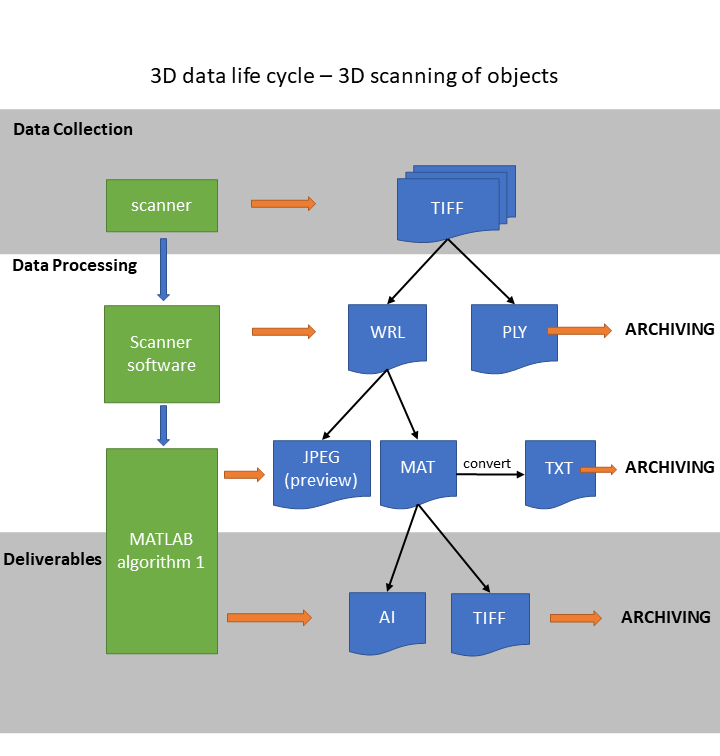Difference between revisions of "Workflow:Archiving outputs of 3D scanning"
Jump to navigation
Jump to search
| Line 1: | Line 1: | ||
{{Infobox COW | {{Infobox COW | ||
|status=Draft | |status=Draft | ||
| − | |tools= | + | |tools=MATLAB |
|input=Set of images acquired with a 3D scanner (TIFF files). | |input=Set of images acquired with a 3D scanner (TIFF files). | ||
|output=A 3D model of the object (mesh) and its drawing produced from the model. | |output=A 3D model of the object (mesh) and its drawing produced from the model. | ||
Revision as of 09:46, 6 March 2022
Workflow Description
Purpose, Context and Content
The workflow documents the process of creating 3D models (of objects) and their derivatives by a stereo-scanner, and specifies which outputs can and need to be archived.
Data acquisition - scanning (and archiving?)
Data processing
- Generating and archiving 3D meshes.
- Positioning of an object based on its geometric properties.
Output - generating and archiving standard drawings or set of views on the model.
Evaluation/Review
Further Information
Scanner software: https://www.polymetric.de/index.php?id=44&L=2
Core publications:
Karasik, A. and Smilansky U. 2011. Computerized morphological classification of ceramics. Journal of Archaeological Science 38(10):2644-2657.
Karasik, A. and Smilansky U. 2008. 3D scanning technology as a standard archaeological tool for pottery analysis: practice and theory. Journal of Archaeological Science 35(5):1148-1168.
